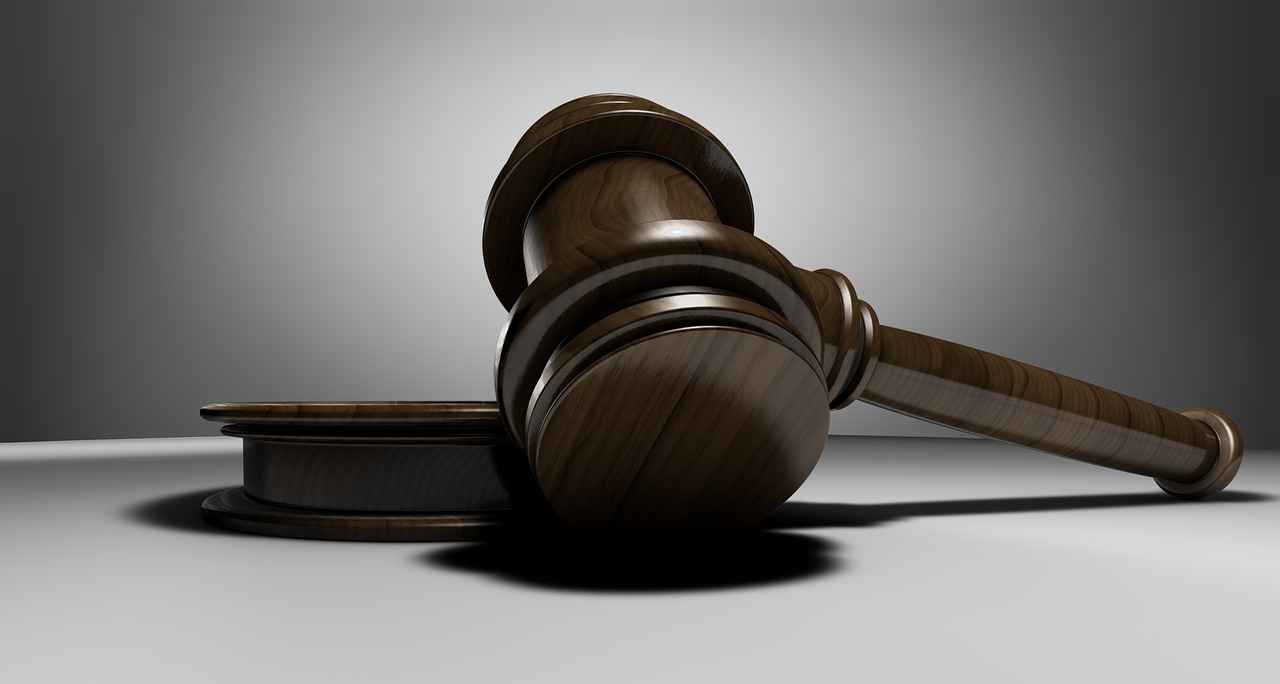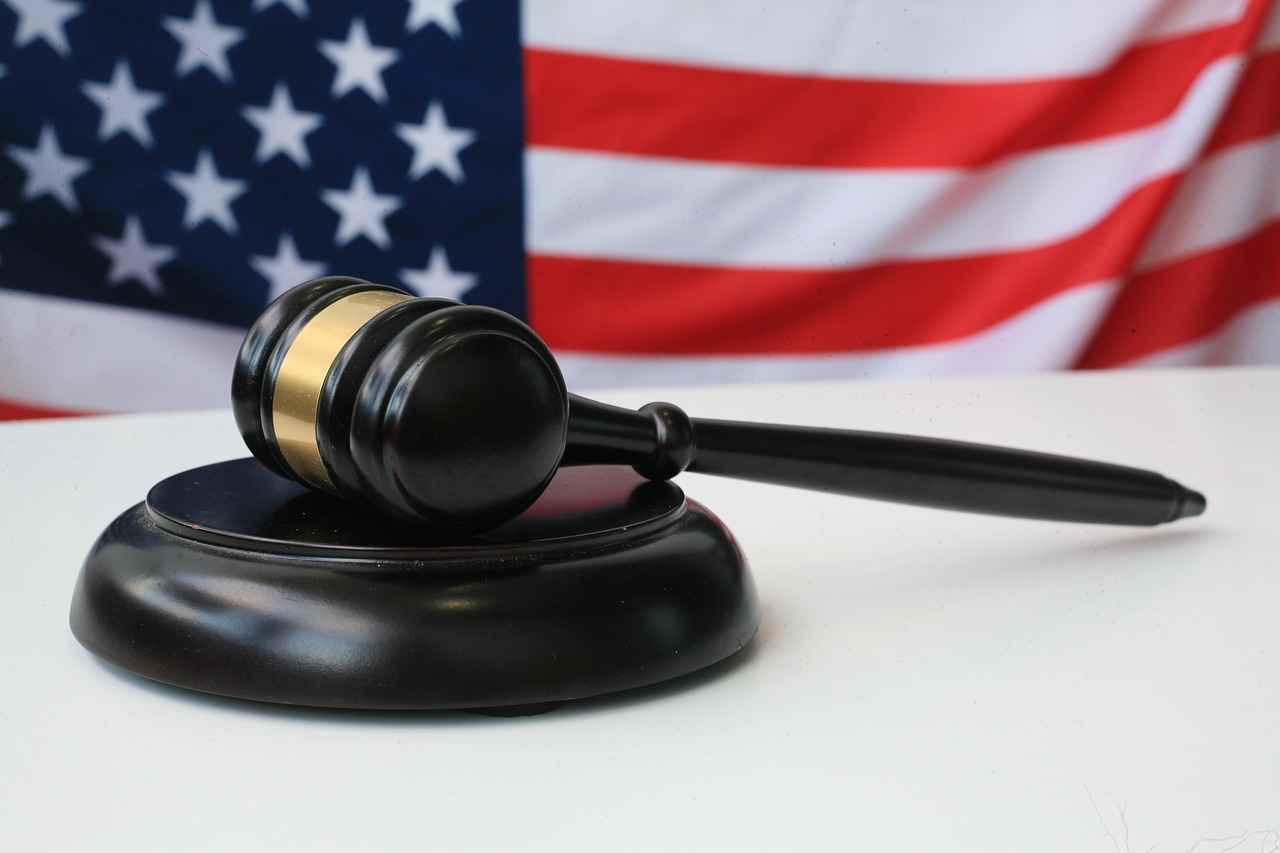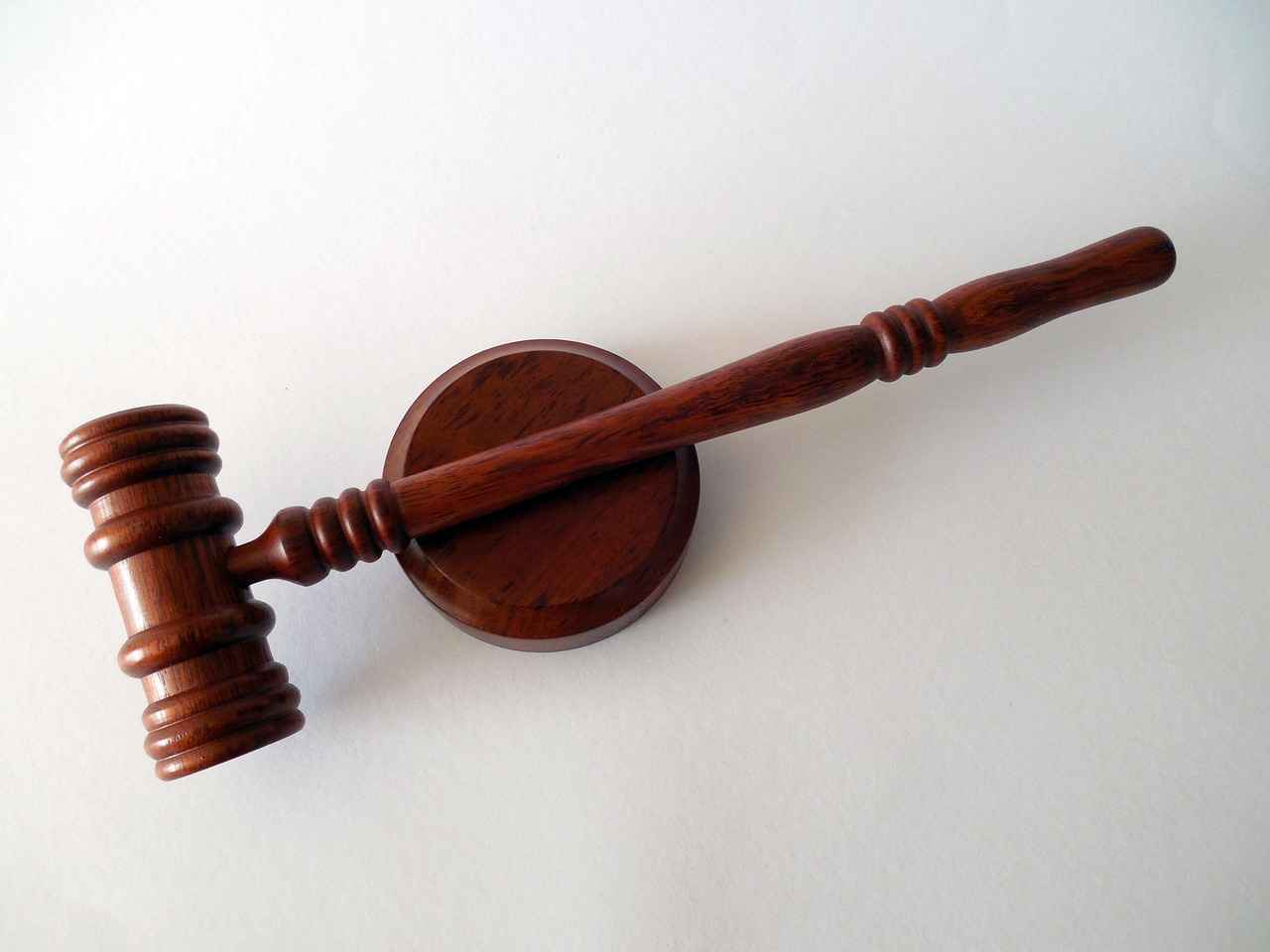This article explores various types of legal cases commonly encountered in the U.S. and offers practical guidance on selecting qualified attorneys in Chesapeake, Virginia, ensuring you receive the best legal representation.
Personal injury cases are among the most prevalent legal issues in the U.S., encompassing incidents such as accidents, slips, and falls. If you’ve been injured due to someone else’s negligence, finding a skilled personal injury attorney can significantly impact the outcome of your case. Look for attorneys with a proven track record in personal injury claims, and consider their experience in negotiating settlements and representing clients in court. Online platforms like Avvo or FindLaw can help you evaluate potential lawyers based on client reviews and professional ratings.
Medical malpractice involves negligence by healthcare professionals that results in harm to patients. Identifying a qualified malpractice attorney is crucial, as these cases require specific expertise and a deep understanding of medical standards. When searching for an attorney, ensure they have experience in handling similar cases and have access to medical experts who can support your claim. Look for credentials such as membership in the American Association for Justice or similar organizations.
Contract disputes arise when one party fails to fulfill their obligations. Finding an attorney with experience in contract law can help you navigate complex legal frameworks and resolve disputes effectively. Seek out lawyers who specialize in commercial law and have a history of successful negotiations or litigation in contract cases. Websites like Lawyers.com can provide insights into an attorney’s background and client testimonials.
Property disputes can range from boundary issues to landlord-tenant disagreements. A knowledgeable real estate attorney can provide valuable guidance in navigating these often complicated matters. When looking for representation, check for attorneys who are familiar with local real estate laws and have experience in mediation or litigation. Utilizing local bar association resources can also help you find qualified real estate lawyers in your area.
Disputes between landlords and tenants are common, often involving lease agreements or maintenance issues. An attorney specializing in landlord-tenant law can help protect your rights in these situations. When selecting an attorney, look for someone who understands both sides of the issue and has a solid grasp of local housing laws. Reading reviews and checking their success rate in similar cases can provide additional assurance.
Defamation cases involve false statements that harm a person’s reputation. Finding a lawyer experienced in defamation law is essential for effectively navigating these sensitive cases. Look for attorneys who have handled both libel and slander cases and have a strong understanding of First Amendment rights. Checking their previous case outcomes and client feedback can help you determine their effectiveness in this niche area.
Employment disputes can encompass issues from wrongful termination to discrimination. An attorney with a focus on labor law can help employees understand their rights and seek justice. When searching for legal representation, consider attorneys who are familiar with both federal and state employment laws, and have a history of advocating for workers’ rights. Online legal directories can assist you in finding qualified labor attorneys in your area.
Product liability cases arise when consumers are harmed by defective products. A seasoned product liability lawyer can assist in holding manufacturers accountable for their negligence. Look for attorneys who have experience with similar claims and a solid understanding of consumer protection laws. Checking for certifications and past case results can help you gauge their expertise in this area.
Wrongful death lawsuits seek justice for families who have lost loved ones due to negligence. It’s important to find compassionate attorneys who specialize in these emotionally charged cases. When evaluating potential lawyers, consider their experience with wrongful death claims and their ability to handle sensitive issues with empathy. Referrals from trusted sources can also be beneficial in finding the right representation.
Class action lawsuits allow groups of individuals to sue collectively for similar grievances. An attorney experienced in class actions can guide you through the complexities of these cases. Look for law firms that have successfully managed class action suits in the past and have the resources to handle large-scale litigation. Researching their reputation and previous case results can provide valuable insights.
Assault and battery cases involve criminal and civil elements. A knowledgeable attorney can help you navigate both aspects, whether you are a victim or accused. When searching for an attorney, consider those who have experience in both criminal defense and personal injury law, as this dual expertise can be valuable in these cases.
Drug offenses can lead to serious legal consequences. Finding an attorney well-versed in criminal defense can help you navigate the complexities of drug-related charges. Look for lawyers who have a strong track record in defending clients against drug offenses, and who understand the nuances of state and federal drug laws.
Divorce proceedings can be emotionally taxing and legally complex. A skilled divorce attorney can help you understand your rights regarding custody, support, and property division. When choosing a divorce lawyer, consider their experience in family law and their approach to mediation and negotiation, which can lead to a less contentious process.

Understanding Personal Injury Cases
Personal injury cases represent a significant portion of legal disputes in the United States. These cases arise when individuals suffer physical or psychological harm due to the negligence or wrongful actions of another party. Common scenarios include car accidents, slips and falls, workplace injuries, and medical malpractice. The complexities of personal injury law necessitate the expertise of a skilled attorney who can effectively navigate the legal landscape.
When seeking a personal injury attorney, consider the following steps to ensure you find a qualified professional:
- Research and Referrals: Start by asking friends, family, or colleagues for recommendations. Personal referrals can provide insights into an attorney’s effectiveness and reliability.
- Check Online Reviews: Utilize platforms like Avvo, Yelp, and Google Reviews to read client feedback. Pay attention to both positive and negative reviews to gauge the attorney’s strengths and weaknesses.
- Verify Credentials: Ensure the attorney is licensed and in good standing with the state bar association. Look for any disciplinary actions or complaints against them.
- Experience in Personal Injury Law: Confirm that the attorney specializes in personal injury cases. Experience in this specific area is crucial, as it involves understanding various laws, regulations, and negotiation tactics.
- Initial Consultation: Most personal injury attorneys offer free consultations. Use this opportunity to discuss your case and assess the attorney’s communication style and approach.
Additionally, inquire about the attorney’s track record in similar cases. Ask about their success rates, settlement amounts, and trial experience. A seasoned attorney should be able to provide concrete examples of past cases and outcomes.
Another critical factor is the fee structure. Most personal injury attorneys work on a contingency fee basis, meaning they only get paid if you win your case. Discuss the percentage they will take and any additional costs you may incur during the process.
Finally, trust your instincts. The attorney-client relationship is built on trust and communication. If you feel uncomfortable or unsure about an attorney, it’s essential to continue your search until you find someone who aligns with your needs and expectations.
By following these guidelines, you can significantly increase your chances of finding a competent personal injury attorney who will advocate for your rights and work diligently to secure the compensation you deserve.

Navigating Medical Malpractice Claims
Medical malpractice is a serious issue that arises when healthcare professionals fail to provide the standard of care expected in their field, leading to harm or injury to patients. This can include a range of situations, from misdiagnosis and surgical errors to improper medication administration. Understanding the intricacies of medical malpractice is essential for anyone who believes they have been a victim of such negligence.
One of the first steps in navigating a medical malpractice claim is to identify a qualified malpractice attorney. These cases are not only complex but also require a deep understanding of both medical standards and legal frameworks. A skilled attorney will have experience in handling similar cases and a proven track record of success. Here are some steps to help you find the right legal representation:
- Research Credentials: Look for attorneys who specialize in medical malpractice law. Check their educational background, years of experience, and any specialized training in medical issues.
- Evaluate Experience: Ensure the attorney has experience specifically with medical malpractice cases. Ask about their success rates and whether they have handled cases similar to yours.
- Seek Referrals: Personal recommendations can be invaluable. Ask friends, family, or healthcare professionals for referrals to reputable attorneys.
- Read Reviews: Online reviews and testimonials can provide insight into an attorney’s reputation and the experiences of past clients.
- Consult Multiple Attorneys: Schedule initial consultations with several attorneys to gauge their expertise and approach. Most attorneys offer free consultations, allowing you to discuss your case without financial commitment.
During your consultations, pay attention to how the attorney communicates. A good malpractice attorney should be able to explain complex medical and legal concepts in a way that is easy to understand. They should also be empathetic and willing to listen to your concerns.
Additionally, it is important to discuss fees and payment structures upfront. Many medical malpractice attorneys work on a contingency fee basis, meaning they only get paid if you win your case. Understanding the financial aspects of hiring an attorney can help you avoid unexpected costs later on.
When pursuing a medical malpractice claim, timing is crucial. Each state has a statute of limitations that dictates how long you have to file a claim after the incident occurs. Therefore, it is essential to act quickly and consult with an attorney as soon as possible to ensure your rights are protected.
In summary, navigating medical malpractice claims requires diligence in selecting a qualified attorney. By conducting thorough research, seeking referrals, and consulting with multiple attorneys, you can find a legal professional who is well-equipped to handle your case. Remember, the right attorney can make a significant difference in the outcome of your medical malpractice claim.

Breach of Contract Disputes
are a significant area of concern in the legal landscape, particularly in business and personal transactions. These disputes occur when one party fails to meet their obligations as stipulated in a contract. This can lead to financial losses and strained relationships, making it essential to address these issues promptly and effectively.
When dealing with a breach of contract, it is crucial to find an attorney who specializes in contract law. An experienced attorney can help you navigate the complexities of legal agreements and the frameworks governing them. Here are some practical steps to consider when searching for the right legal representation:
- Research and Referrals: Start by seeking recommendations from friends, family, or business associates who have faced similar issues. Online legal directories and reviews can also provide insights into a lawyer’s reputation.
- Check Credentials: Look for attorneys with specific experience in contract disputes. Verify their education, bar association membership, and any certifications related to contract law.
- Initial Consultations: Many attorneys offer free initial consultations. Use this opportunity to discuss your case and gauge the lawyer’s understanding of your situation. Ask about their track record in handling breach of contract cases.
- Evaluate Communication Skills: Effective communication is vital in legal matters. Choose an attorney who listens to your concerns and explains complex legal concepts clearly.
- Understand Fee Structures: Legal fees can vary widely. Ensure you understand how the attorney charges—whether it’s hourly, flat fee, or contingency-based—and what additional costs may arise.
In major metropolitan areas like New York City, Los Angeles, and Chicago, the competition among attorneys can be fierce. Therefore, it’s essential to remain vigilant and avoid common red flags:
- Lack of Experience: Be cautious of attorneys who do not specialize in contract law or have minimal experience in handling similar cases.
- Unclear Communication: If an attorney fails to explain the process or your options clearly, it may indicate a lack of expertise or commitment.
- Pressure Tactics: Avoid lawyers who pressure you into making quick decisions or signing contracts without fully understanding the implications.
Ultimately, finding the right attorney for a breach of contract dispute requires careful consideration and due diligence. By following these guidelines, you can increase your chances of securing effective legal representation that will advocate for your rights and interests.

Property Disputes and Real Estate Issues
Property disputes can manifest in various forms, ranging from boundary issues to landlord-tenant disagreements. These disputes can often escalate quickly, leading to significant financial and emotional stress for those involved. Understanding the nature of these disputes and knowing how to navigate them is crucial for property owners, tenants, and real estate investors alike.
One common type of property dispute involves boundary issues. This occurs when two neighboring property owners disagree on the exact location of their property lines. Such disputes can lead to costly legal battles, especially if one party has made improvements or alterations that encroach upon the other’s land. To resolve these issues, it’s advisable to consult a knowledgeable real estate attorney who can help clarify property lines through surveys and legal documentation.
Another prevalent issue is landlord-tenant disputes. These conflicts can arise from various situations, including disagreements over lease terms, maintenance responsibilities, or eviction processes. For tenants, knowing their rights is essential, as landlords must adhere to specific legal guidelines regarding tenant treatment. A qualified attorney specializing in landlord-tenant law can provide guidance on local regulations, ensuring that tenants are protected against unlawful eviction or discrimination.
When selecting a real estate attorney, consider the following practical steps:
- Research Credentials: Look for attorneys with a strong background in real estate law, including relevant certifications and years of experience.
- Read Reviews: Online reviews and testimonials can provide insight into an attorney’s reputation and effectiveness.
- Consultation Meetings: Schedule initial consultations to discuss your case. This allows you to gauge their expertise and approach to handling your specific issue.
- Ask About Fees: Understand the attorney’s fee structure upfront to avoid unexpected costs later on.
Additionally, be aware of red flags when hiring an attorney. If an attorney guarantees a specific outcome, lacks communication skills, or pressures you into making quick decisions, these may be signs to look elsewhere. A good attorney will provide you with realistic expectations and keep you informed throughout the process.
In conclusion, navigating property disputes requires a solid understanding of real estate law and the ability to find a qualified attorney. Whether dealing with boundary issues or landlord-tenant conflicts, seeking expert legal guidance can help protect your rights and ensure a fair resolution.

Landlord-Tenant Disputes
Landlord-tenant disputes are a frequent occurrence in the United States, often revolving around issues such as lease agreements, maintenance responsibilities, and security deposits. These conflicts can arise from misunderstandings, differing expectations, or violations of the lease terms. Understanding the legal landscape surrounding these disputes is crucial for both landlords and tenants.
When facing a landlord-tenant dispute, it is essential to recognize the specific rights and responsibilities outlined in the lease agreement. This document serves as the foundation for the relationship between the landlord and tenant, detailing the obligations each party has. For instance, landlords are typically responsible for maintaining a safe and habitable living environment, while tenants are expected to pay rent on time and keep the property in good condition.
In many cases, disputes may arise over maintenance issues. Tenants may feel that their landlord is not addressing necessary repairs, while landlords may argue that tenants are responsible for certain damages. In such situations, having a knowledgeable attorney specializing in landlord-tenant law can be invaluable. They can help clarify the legal obligations of both parties and assist in resolving disputes amicably or through litigation if necessary.
Additionally, issues regarding security deposits are common points of contention. Many states have specific laws governing how security deposits must be handled, including how much can be charged and the timeframe for returning the deposit after a tenant moves out. If a landlord fails to comply with these regulations, tenants may have grounds to take legal action. An attorney can help tenants understand their rights regarding security deposits and guide them through the process of recovering funds if needed.
Furthermore, it is important to be aware of the potential for retaliatory actions. If a tenant exercises their rights, such as filing a complaint about unsafe living conditions, a landlord may attempt to retaliate by raising rent or attempting to evict the tenant. Such actions are illegal in many jurisdictions, and a lawyer can help tenants navigate these complex situations.
When searching for a qualified attorney to handle landlord-tenant disputes, consider the following tips:
- Look for specialization: Seek attorneys who specialize in landlord-tenant law to ensure they are well-versed in the relevant statutes and case law.
- Check credentials: Verify the attorney’s education, experience, and any certifications related to real estate or landlord-tenant law.
- Read reviews: Look for client testimonials and reviews online to gauge the attorney’s reputation and success rate in handling similar cases.
- Consult multiple attorneys: Schedule consultations with several attorneys to discuss your case and determine who you feel most comfortable working with.
- Avoid red flags: Be cautious of attorneys who guarantee outcomes, pressure you into quick decisions, or have a history of disciplinary actions.
In metropolitan areas like New York City, Los Angeles, and Chicago, the demand for legal services in landlord-tenant disputes can be high. Utilizing platforms such as Avvo, FindLaw, or local bar association directories can help you find reputable attorneys in your area. Additionally, consider seeking recommendations from friends or family who have had positive experiences with legal professionals.
In summary, landlord-tenant disputes are common and can lead to significant legal challenges. By understanding your rights and responsibilities, and by seeking the assistance of a qualified attorney, you can navigate these disputes more effectively. Whether you are a landlord or a tenant, having the right legal representation can make all the difference in resolving conflicts and protecting your interests.

Defamation Cases: Libel and Slander
Defamation cases are serious legal matters that arise when false statements are made about an individual or entity, causing harm to their reputation. These statements can take two forms: libel, which refers to written defamation, and slander, which pertains to spoken defamation. Navigating the complexities of defamation law requires a specialized understanding, making it crucial to find a lawyer experienced in this field.
When seeking legal representation for a defamation case, consider the following steps:
- Research Specialization: Look for attorneys who specialize in defamation law. Check their websites for information about their experience and past cases.
- Check Credentials: Verify their educational background and any certifications related to defamation and media law. Membership in relevant legal associations can also be a good indicator of expertise.
- Read Reviews: Online reviews and testimonials can provide insight into an attorney’s reputation and success rate in handling defamation cases.
- Consultation: Schedule consultations with potential lawyers to discuss your case. This initial meeting can help you gauge their understanding and approach to your situation.
- Evaluate Communication: A good attorney should communicate clearly and be responsive to your questions. Ensure you feel comfortable discussing sensitive issues with them.
It’s essential to understand that defamation cases can be complex and vary significantly depending on the jurisdiction. Different states have different laws regarding defamation, including the burden of proof and the types of damages that can be claimed. An experienced attorney will be familiar with these nuances and can tailor their approach accordingly.
In addition to finding the right lawyer, it’s also important to gather and preserve evidence related to your case. This may include:
- Documentation: Keep copies of any written statements, social media posts, or articles that contain the defamatory statements.
- Witness Statements: If there are witnesses who can support your claims, obtain their contact information and statements.
- Impact Evidence: Document how the false statements have affected your personal and professional life. This may include loss of income, emotional distress, or damage to your reputation.
Be aware of the statute of limitations for filing a defamation lawsuit, as it varies by state. In many jurisdictions, you may have a limited time frame—often one to three years—to initiate legal action. Consulting with a qualified attorney can help ensure you meet all necessary deadlines and requirements.
Finally, consider the potential outcomes of a defamation case. Successful claims may result in monetary damages, retractions of false statements, or even public apologies. However, it’s critical to weigh the potential benefits against the emotional and financial costs of litigation. A skilled attorney can help you navigate this decision, offering guidance on whether to pursue a settlement or take your case to court.
In conclusion, finding a competent lawyer for a defamation case is essential for protecting your reputation and seeking justice. By conducting thorough research, consulting multiple attorneys, and preparing your evidence, you can enhance your chances of a successful outcome in your defamation claim.

Employment Disputes and Workers’ Rights
Employment disputes can arise from a variety of issues, including wrongful termination, discrimination, and harassment. Understanding your rights as an employee is crucial in navigating these complex situations. An attorney specializing in labor law can provide invaluable assistance in ensuring that your rights are protected and that you receive the justice you deserve.
Types of Employment Disputes
- Wrongful Termination: This occurs when an employee is fired for illegal reasons, such as discrimination or retaliation for whistleblowing.
- Discrimination: Employees may face discrimination based on race, gender, age, disability, or other protected characteristics.
- Harassment: This includes any unwelcome behavior that creates a hostile work environment, such as sexual harassment or bullying.
- Wage and Hour Disputes: Employees may be denied proper wages, overtime pay, or benefits they are entitled to by law.
Finding a Qualified Employment Attorney
When searching for a competent employment attorney, consider the following steps:
- Research Specialization: Look for attorneys who specialize in employment law. They should have a deep understanding of the specific laws and regulations that apply to your case.
- Check Credentials: Verify their education, licensing, and any special certifications in labor law. Membership in professional organizations, such as the National Employment Lawyers Association (NELA), can also indicate expertise.
- Read Reviews: Look for client testimonials and reviews on platforms like Avvo or Martindale-Hubbell. Positive feedback from former clients can be a good indicator of an attorney’s effectiveness.
- Consultation: Schedule a consultation to discuss your case. This meeting will help you gauge their communication style, approach, and whether you feel comfortable working with them.
Red Flags to Avoid
- Lack of Experience: Be cautious of attorneys who do not have a proven track record in employment law.
- High Pressure Tactics: Avoid attorneys who pressure you into signing contracts or making decisions quickly.
- Unclear Fees: Ensure that the attorney is transparent about their fee structure. Avoid those who are vague about costs or seem to have hidden fees.
Understanding the Legal Process
Once you have selected an attorney, they will guide you through the legal process, which may include:
- Filing a Complaint: Your attorney will help you file a complaint with the appropriate agency, such as the Equal Employment Opportunity Commission (EEOC).
- Mediation: Many employment disputes are resolved through mediation, where both parties discuss their issues with a neutral third party.
- Litigation: If mediation fails, your attorney may recommend filing a lawsuit. They will represent you in court and advocate for your rights.
Conclusion
Employment disputes can be daunting, but with the right legal representation, you can navigate these challenges effectively. An experienced employment attorney will not only help you understand your rights but also work diligently to ensure that you achieve a favorable outcome. Remember to do thorough research, ask the right questions, and trust your instincts when selecting an attorney to represent you in your employment dispute.

Product Liability Claims
Product liability claims are a critical aspect of consumer protection law, arising when defective products cause harm to individuals. These cases can stem from various issues, including design flaws, manufacturing defects, or inadequate warnings and instructions. Understanding the intricacies of product liability is essential for consumers and legal professionals alike.
When a consumer is injured due to a defective product, they may have the right to seek compensation for their injuries, medical expenses, lost wages, and pain and suffering. This is where a seasoned product liability lawyer comes into play. Their expertise can be invaluable in navigating the complexities of these cases and holding manufacturers accountable for their negligence.
In the U.S., product liability laws vary by state, making it crucial to consult with an attorney who is well-versed in the specific laws applicable in your jurisdiction. A qualified lawyer will understand the different types of product liability claims, including:
- Design Defects: These occur when a product is inherently dangerous due to its design, even if it is manufactured correctly.
- Manufacturing Defects: These happen when a product is improperly made, leading to dangerous conditions that were not intended in the design phase.
- Failure to Warn: Manufacturers have a duty to inform consumers of potential risks associated with their products. If they fail to do so, they may be held liable.
To find the best product liability attorney, consider the following steps:
- Research and Referrals: Start by asking friends, family, or colleagues for recommendations. Online reviews and ratings can also provide insights into a lawyer’s reputation.
- Check Credentials: Look for attorneys who specialize in product liability law. Their education, experience, and success rates in similar cases are crucial indicators of their capability.
- Consultation: Many attorneys offer free consultations. Use this opportunity to discuss your case and gauge their expertise and approach.
- Assess Communication: A good attorney should communicate clearly and be responsive to your questions and concerns. This is vital for a successful attorney-client relationship.
It is also important to be aware of red flags when hiring a product liability lawyer:
- Guarantees of Outcomes: No attorney can guarantee a specific outcome. Be wary of those who make such claims.
- Lack of Experience: Ensure that the attorney has a proven track record in handling product liability cases specifically.
- Pressure Tactics: If an attorney pressures you to sign a contract or make a decision quickly, it may indicate a lack of professionalism.
In major metropolitan areas such as New York City, Los Angeles, and Chicago, there are numerous law firms specializing in product liability. These cities often have a higher concentration of experienced attorneys due to their larger populations and the complexity of cases. Utilize legal directories and bar association websites to find qualified lawyers in your area.
In conclusion, product liability claims are vital for holding manufacturers accountable for unsafe products. By understanding the types of claims, conducting thorough research, and being aware of potential red flags, you can find a qualified attorney who will advocate for your rights and help you navigate the legal system effectively.

Wrongful Death Lawsuits
are a critical area of law that seeks to provide justice for families who have lost loved ones due to the negligence of others. These lawsuits arise when the actions or inactions of an individual or entity result in the untimely death of another person. The emotional toll on the surviving family members can be profound, making it essential to approach these cases with both sensitivity and expertise.
When pursuing a wrongful death claim, it is vital to find compassionate attorneys who specialize in these emotionally charged cases. The right lawyer can help families navigate the complexities of the legal system while providing the support they need during such a difficult time.
To begin your search for a qualified wrongful death attorney, consider the following steps:
- Research Local Attorneys: Start by looking for attorneys in your area who specialize in wrongful death cases. Websites like Avvo and FindLaw can provide valuable information about lawyers’ backgrounds, specialties, and client reviews.
- Check Credentials: Look for attorneys with a strong track record in wrongful death cases. This includes years of experience, successful settlements, and trial verdicts. Verify their credentials through state bar associations to ensure they are licensed and in good standing.
- Seek Recommendations: Personal recommendations from friends, family, or colleagues can be invaluable. They can provide insights into their experiences with particular attorneys and help you shortlist potential candidates.
- Schedule Consultations: Most personal injury attorneys offer free initial consultations. Use this opportunity to discuss your case, assess the attorney’s approach, and determine if they are a good fit for your needs.
- Assess Communication Skills: During your consultation, pay attention to how well the attorney communicates. They should be able to explain complex legal concepts in a way that you can understand and show genuine empathy for your situation.
- Evaluate Fees and Costs: Understand the attorney’s fee structure before hiring them. Many wrongful death attorneys work on a contingency fee basis, meaning they only get paid if you win your case. Ensure you are clear on the percentage they will take from any settlement or award.
It’s essential to act quickly in wrongful death cases, as there are statutes of limitations that can affect your ability to file a lawsuit. In many states, the timeframe to file a wrongful death claim is limited, so seeking legal representation promptly can be crucial.
Additionally, a skilled attorney will not only help you gather evidence and build a strong case but also provide emotional support and guidance throughout the process. They can help you understand the potential damages you may be entitled to, including medical expenses, funeral costs, lost wages, and compensation for emotional suffering.
In summary, finding the right wrongful death attorney involves thorough research, careful consideration of credentials, and an assessment of their communication skills and empathy. By following these steps, families can ensure they have the best possible representation and support during one of the most challenging times in their lives.

Class Action Lawsuits Explained
Class action lawsuits represent a powerful legal mechanism that enables a group of individuals to collectively pursue legal action against a defendant for similar grievances. This type of lawsuit is particularly beneficial in cases where the damages suffered by each individual may be too small to justify a separate lawsuit. By banding together, plaintiffs can share the costs of litigation and increase their chances of a favorable outcome.
In the realm of class action lawsuits, it is essential to have an attorney who possesses extensive experience in this specialized area of law. Class actions often involve complex legal principles, including issues of certification, where the court must approve the group as a class, and the management of the case, which can span several years. An attorney well-versed in these nuances can navigate the intricacies of the legal process, ensuring that the rights of all class members are protected.
When seeking an attorney for class action lawsuits, consider the following practical steps:
- Research Their Experience: Look for attorneys who have successfully handled class action cases in the past. Their track record can provide insight into their capability and expertise.
- Check Credentials: Verify their qualifications, including their education, bar admissions, and any special certifications related to class action or consumer protection law.
- Read Reviews and Testimonials: Online reviews from previous clients can offer valuable information about an attorney’s reputation and client satisfaction.
- Consult Legal Directories: Utilize platforms like Avvo or FindLaw to find qualified attorneys in your area, as these directories often include ratings and reviews.
- Initial Consultation: Many attorneys offer free consultations. Use this opportunity to discuss your case and gauge their understanding and approach to class actions.
It is also crucial to be aware of potential red flags when hiring an attorney for a class action lawsuit:
- Lack of Experience: Be cautious of attorneys who have limited experience in class action cases, as the complexities involved require a specific skill set.
- High Pressure Tactics: If an attorney pressures you to sign a contract quickly or makes unrealistic promises about the outcome, consider it a warning sign.
- Ambiguous Fee Structures: Ensure you understand how the attorney will charge for their services. Class action cases often operate on a contingency fee basis, but it’s important to clarify all terms upfront.
In major metropolitan areas such as New York City, Los Angeles, and Chicago, the legal landscape can be competitive. Therefore, it’s vital to take your time in selecting the right attorney. Networking within community groups or seeking recommendations from friends can also be beneficial. Additionally, consider attending legal seminars or workshops focused on class action lawsuits to gain insights and meet potential attorneys.
Ultimately, class action lawsuits serve as a crucial tool for individuals seeking justice against larger entities, such as corporations or government agencies. With the right legal representation, plaintiffs can effectively advocate for their rights and achieve meaningful results.

Assault and Battery Legal Matters
Assault and battery cases are serious legal matters that can have significant consequences for both victims and the accused. Understanding the nuances of these cases is essential for anyone involved. Assault generally refers to the threat or attempt to cause physical harm to another person, while battery involves the actual physical contact or harm. These offenses can lead to both criminal charges and civil lawsuits, making it crucial to have experienced legal representation.
In the realm of criminal law, assault and battery can result in severe penalties, including fines and incarceration. The severity of the charges often depends on the circumstances surrounding the incident, such as whether a weapon was used or if the victim suffered serious injuries. A knowledgeable attorney can navigate the complexities of the criminal justice system, helping clients understand their rights and potential defenses.
On the civil side, victims of assault and battery may pursue compensation for damages, including medical expenses, lost wages, and emotional distress. This is where the expertise of a civil attorney becomes invaluable. They can assist victims in filing a lawsuit against the perpetrator, ensuring that all legal avenues are explored to secure the compensation deserved.
When seeking legal representation for assault and battery cases, whether as a victim or an accused individual, consider the following important factors:
- Experience: Look for attorneys who specialize in criminal defense or personal injury law, depending on your situation. Their experience in handling similar cases can greatly affect the outcome.
- Track Record: Research the attorney’s success rate in court, particularly in assault and battery cases. A proven history of favorable verdicts can be a good indicator of their capability.
- Client Reviews: Read testimonials and reviews from previous clients. This feedback can provide insight into the attorney’s communication style, professionalism, and overall effectiveness.
- Consultation: Take advantage of free initial consultations to gauge the attorney’s understanding of your case and their proposed strategy. This meeting can help you determine if they are a good fit for your needs.
- Fees: Understand the attorney’s fee structure. Some may work on a contingency basis, while others may charge hourly rates. Ensure you are comfortable with their billing practices before proceeding.
- Red Flags: Be cautious of attorneys who make unrealistic promises or guarantee outcomes. Legal cases can be unpredictable, and no attorney can assure a specific result.
In metropolitan areas like New York City, Los Angeles, and Chicago, finding the right attorney can be particularly challenging due to the sheer number of legal professionals available. Utilize online platforms such as Avvo or FindLaw to compare attorneys, read reviews, and check credentials. Additionally, local bar associations can provide referrals to qualified attorneys specializing in assault and battery cases.
Ultimately, whether you are a victim seeking justice or an accused individual defending against serious charges, having a competent attorney by your side is essential. They can provide the guidance needed to navigate the complex legal landscape surrounding assault and battery cases, ensuring that your rights are protected and that you receive fair representation.

Understanding Drug Offenses
When it comes to drug offenses, the legal landscape can be daunting. Charges can range from possession of a small amount of illegal substances to trafficking large quantities, each carrying its own set of serious legal consequences. Convictions can lead to hefty fines, imprisonment, and a lasting criminal record, which can impact various aspects of life, including employment opportunities and housing options.
In the United States, drug laws vary significantly from state to state. For instance, some states have adopted more lenient approaches towards marijuana, while others maintain strict penalties for all drug-related offenses. Therefore, understanding the specific laws in your state is crucial. If you find yourself facing drug charges, it is imperative to seek legal representation from an attorney who specializes in criminal defense, particularly drug-related cases.
When searching for a qualified attorney, consider the following steps:
- Research Experience: Look for attorneys with a proven track record in handling drug offenses. Check their experience in similar cases and their success rates.
- Check Credentials: Ensure that the attorney is licensed to practice in your state and is in good standing with the state bar association. Membership in professional organizations, such as the National Association of Criminal Defense Lawyers (NACDL), can also be a positive sign.
- Read Reviews: Online reviews and testimonials can provide insight into an attorney’s reputation. Websites like Avvo and Martindale-Hubbell offer ratings and reviews from clients and peers.
- Consultation: Schedule a consultation to discuss your case. This initial meeting is a chance to gauge the attorney’s understanding of drug laws and their approach to defense strategies.
- Assess Communication: Effective communication is key in any attorney-client relationship. Ensure that the attorney listens to your concerns and explains the legal process clearly.
- Evaluate Fees: Understand the fee structure upfront. Some attorneys charge a flat fee, while others bill by the hour. Be wary of any hidden costs or unexpected charges.
In addition to these steps, be aware of red flags that may indicate an attorney is not the right fit for your case:
- Lack of Specialization: Avoid attorneys who do not specialize in criminal defense or drug offenses.
- Poor Communication: If an attorney is unresponsive or fails to provide clear answers during your initial consultation, consider looking elsewhere.
- Pressure Tactics: Be cautious of attorneys who pressure you into making quick decisions or who guarantee specific outcomes.
In metropolitan areas like New York City, Los Angeles, and Chicago, the competition among attorneys can be fierce. Therefore, taking the time to conduct thorough research is essential. Utilize online platforms, such as legal directories and social media, to gather information about potential attorneys. Additionally, seeking referrals from trusted friends or family members can lead you to reputable legal professionals.
Ultimately, navigating drug offenses requires not only a strong legal strategy but also the right attorney to guide you through the complexities of the legal system. By following these guidelines, you can increase your chances of finding a qualified lawyer who can effectively represent your interests and help achieve the best possible outcome in your case.

The Importance of Hiring a Divorce Attorney
Divorce proceedings can be emotionally taxing and legally complex. This is why having a skilled divorce attorney by your side is crucial. A proficient attorney can help you navigate the intricate landscape of divorce law, ensuring that your rights are protected throughout the process. Understanding your rights regarding custody, support, and property division is essential, and an experienced lawyer can provide clarity on these matters.
When facing a divorce, you may encounter various challenges, including emotional stress and financial uncertainties. A divorce attorney can act as your advocate, guiding you through the legal maze and providing you with the support you need. Here are some key reasons why hiring a divorce attorney is vital:
- Expertise in Family Law: Divorce attorneys specialize in family law, which encompasses various aspects of divorce, including child custody, alimony, and asset division. Their expertise allows them to provide tailored advice based on your unique situation.
- Understanding of Local Laws: Laws regarding divorce can vary significantly from state to state. A local attorney will be well-versed in the specific laws and regulations in your area, ensuring compliance and effective representation.
- Negotiation Skills: Divorce often involves negotiations regarding custody arrangements and asset division. A skilled attorney can negotiate on your behalf, aiming for a fair settlement that meets your needs.
- Emotional Support: Divorce can be a distressing experience. An attorney can provide not only legal support but also emotional reassurance, helping you make informed decisions without being overwhelmed by stress.
- Protection of Rights: An attorney’s primary role is to protect your rights. They can ensure that you receive a fair share of marital assets and that any child support or custody arrangements serve your best interests.
Finding the right divorce attorney involves careful consideration. Here are some practical tips to help you select a qualified professional:
- Research Credentials: Look for attorneys with a specialization in family law and a proven track record in divorce cases. Check their credentials, including education, certifications, and years of experience.
- Read Reviews: Online reviews and testimonials can provide insight into an attorney’s reputation. Look for feedback from past clients to gauge their satisfaction with the attorney’s services.
- Schedule Consultations: Many attorneys offer free initial consultations. Use this opportunity to ask questions about their experience, approach to divorce cases, and fees. This will help you determine if they are a good fit for your needs.
- Avoid Red Flags: Be cautious of attorneys who promise guaranteed outcomes or have a reputation for aggressive tactics. You want someone who is focused on achieving a fair resolution rather than escalating conflicts.
- Consider Communication: Effective communication is key in any attorney-client relationship. Choose an attorney who is responsive, listens to your concerns, and explains legal concepts in a way you can understand.
In conclusion, hiring a divorce attorney is an important step in ensuring that you navigate the complexities of divorce with confidence. Their expertise not only helps you understand your rights but also provides the emotional and legal support you need during this challenging time. By following the tips outlined above, you can find a qualified divorce attorney who will advocate for your best interests and help you achieve a favorable outcome.
Finding the right lawyer can be a daunting task, especially when faced with a specific legal issue. With over 30 years of experience in the U.S. legal system, I aim to provide you with comprehensive insights into the most common types of legal cases in the United States. This guide will also offer practical advice on how to find the best attorneys in major metropolitan areas.
Understanding Personal Injury Cases
Personal injury cases are prevalent, often involving accidents, slips, and falls. To find a skilled personal injury attorney, consider the following:
- Experience: Look for lawyers who specialize in personal injury law and have a proven track record.
- Referrals: Ask friends or family for recommendations or check online reviews.
- Consultation: Schedule a consultation to discuss your case and evaluate the attorney’s approach.
Navigating Medical Malpractice Claims
Medical malpractice involves negligence by healthcare professionals. Identifying a qualified malpractice attorney is crucial:
- Specialization: Ensure the attorney specializes in medical malpractice and has experience with similar cases.
- Credentials: Check for board certifications and memberships in relevant legal associations.
- Case History: Review past case outcomes to gauge their success rate.
Breach of Contract Disputes
Contract disputes arise when one party fails to fulfill obligations. To find an attorney with experience in contract law:
- Legal Expertise: Look for attorneys who focus on contract law and have handled similar disputes.
- Negotiation Skills: Assess their ability to negotiate and mediate effectively.
- Client Reviews: Check testimonials to understand their working style and effectiveness.
Property Disputes and Real Estate Issues
Property disputes can range from boundary issues to landlord-tenant disagreements. A knowledgeable real estate attorney can help:
- Local Knowledge: Choose an attorney familiar with local real estate laws and regulations.
- Track Record: Investigate their success in resolving similar disputes.
- Communication: Ensure they communicate clearly and keep you informed throughout the process.
Landlord-Tenant Disputes
Disputes between landlords and tenants often involve lease agreements or maintenance issues. To find a suitable attorney:
- Specialization: Seek attorneys who specialize in landlord-tenant law.
- Experience: Look for those with a history of resolving disputes favorably for their clients.
- Consultation: Use initial consultations to gauge their understanding of your situation.
Defamation Cases: Libel and Slander
Defamation cases involve false statements harming a person’s reputation. Finding an experienced lawyer is essential:
- Expertise: Ensure the attorney has a focus on defamation law and understands the nuances involved.
- Past Cases: Review their history of handling defamation cases successfully.
- Reputation: Check their standing in the legal community through reviews and ratings.
Employment Disputes and Workers’ Rights
Employment disputes can encompass issues from wrongful termination to discrimination. To find the right attorney:
- Labor Law Focus: Look for attorneys who specialize in labor law and employment rights.
- Client Advocacy: Assess their commitment to advocating for employee rights.
- Success Rate: Investigate their track record in similar employment cases.
Product Liability Claims
Product liability cases arise when consumers are harmed by defective products. A seasoned product liability lawyer can assist:
- Specialized Knowledge: Ensure the attorney has a background in product liability law.
- Case Experience: Look for those who have successfully handled similar claims against manufacturers.
- Negotiation Skills: Evaluate their ability to negotiate settlements effectively.
Wrongful Death Lawsuits
Wrongful death lawsuits seek justice for families who have lost loved ones due to negligence. It’s important to find compassionate attorneys:
- Empathy: Choose lawyers who demonstrate understanding and compassion for your situation.
- Experience: Look for a history of handling wrongful death cases successfully.
- Support Services: Ensure they offer support throughout the legal process.
Class Action Lawsuits Explained
Class action lawsuits allow groups of individuals to sue collectively for similar grievances. An attorney experienced in class actions can guide you:
- Class Action Experience: Seek attorneys who have successfully managed class action lawsuits.
- Resource Availability: Ensure they have the resources to handle large-scale litigation.
- Clear Communication: Choose lawyers who keep all plaintiffs informed throughout the process.
Assault and Battery Legal Matters
Assault and battery cases involve criminal and civil elements. A knowledgeable attorney can help navigate both aspects:
- Dual Expertise: Look for attorneys experienced in both criminal and civil law.
- Defense Strategies: Assess their ability to formulate effective defense strategies.
- Client Testimonials: Check reviews from previous clients for insights into their effectiveness.
Understanding Drug Offenses
Drug offenses can lead to serious legal consequences. Finding an attorney well-versed in criminal defense is crucial:
- Criminal Defense Focus: Seek attorneys who specialize in drug offenses and have a solid understanding of the law.
- Case Strategy: Evaluate their approach to handling drug-related charges.
- Community Standing: Research their reputation within the legal community.
The Importance of Hiring a Divorce Attorney
Divorce proceedings can be emotionally taxing and legally complex. A skilled divorce attorney can help you:
- Family Law Expertise: Choose attorneys who specialize in family law and have extensive experience in divorce cases.
- Negotiation Skills: Assess their ability to negotiate fair settlements for custody and support.
- Client Support: Look for lawyers who provide emotional support throughout the process.
Frequently Asked Questions
- What should I look for in a personal injury attorney?
When searching for a personal injury attorney, consider their experience, track record, and communication skills. You want someone who understands the nuances of personal injury law and can effectively advocate for your rights.
- How do I know if I have a valid medical malpractice case?
To determine if you have a valid medical malpractice case, you need to show that a healthcare professional acted negligently and that this negligence caused you harm. Consulting with a qualified malpractice attorney can help clarify your situation.
- What are the common causes of breach of contract disputes?
Breach of contract disputes often arise from misunderstandings, failure to perform obligations, or disagreements over contract terms. Hiring an attorney experienced in contract law can help you navigate these issues effectively.
- Can a real estate attorney help with landlord-tenant disputes?
Absolutely! A real estate attorney can provide valuable insights and legal guidance in landlord-tenant disputes, ensuring that your rights are protected throughout the process.
- What is the difference between libel and slander?
Libel refers to false statements made in written form, while slander involves spoken falsehoods. Both can harm a person’s reputation, and finding a lawyer experienced in defamation law is crucial for navigating these cases.
- What should I do if I believe I was wrongfully terminated?
If you suspect wrongful termination, it’s important to document everything and consult with an attorney specializing in employment law. They can help you understand your rights and options moving forward.
- How can I hold a manufacturer accountable for a defective product?
To hold a manufacturer accountable for a defective product, you should gather evidence of the defect and any harm it caused. A product liability lawyer can guide you through the legal process to seek compensation.
- What steps should I take if I want to file a wrongful death lawsuit?
Filing a wrongful death lawsuit involves gathering evidence, understanding the legal requirements, and consulting with an attorney who specializes in these sensitive cases. They can help you navigate this challenging process.
- What is a class action lawsuit?
A class action lawsuit allows a group of individuals with similar claims to sue a defendant collectively. This can make it easier to address widespread issues, and an experienced attorney can guide you through the complexities involved.
- What should I do if I’m accused of assault or battery?
If you’re accused of assault or battery, it’s crucial to seek legal representation immediately. A knowledgeable attorney can help you navigate both the criminal and civil aspects of the case to protect your rights.
- How can an attorney help with drug offense charges?
An attorney specializing in criminal defense can provide invaluable assistance with drug offense charges by analyzing the evidence, developing a defense strategy, and representing you in court to achieve the best possible outcome.
- Why is hiring a divorce attorney important?
Hiring a divorce attorney is essential because they can help you understand your rights regarding custody, support, and property division, making the process smoother and less stressful during a challenging time.














